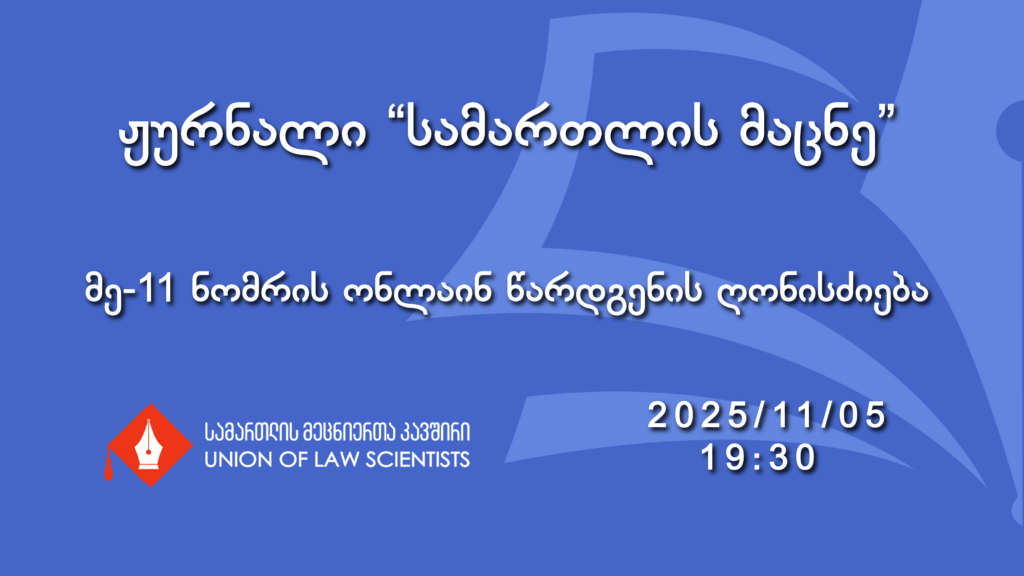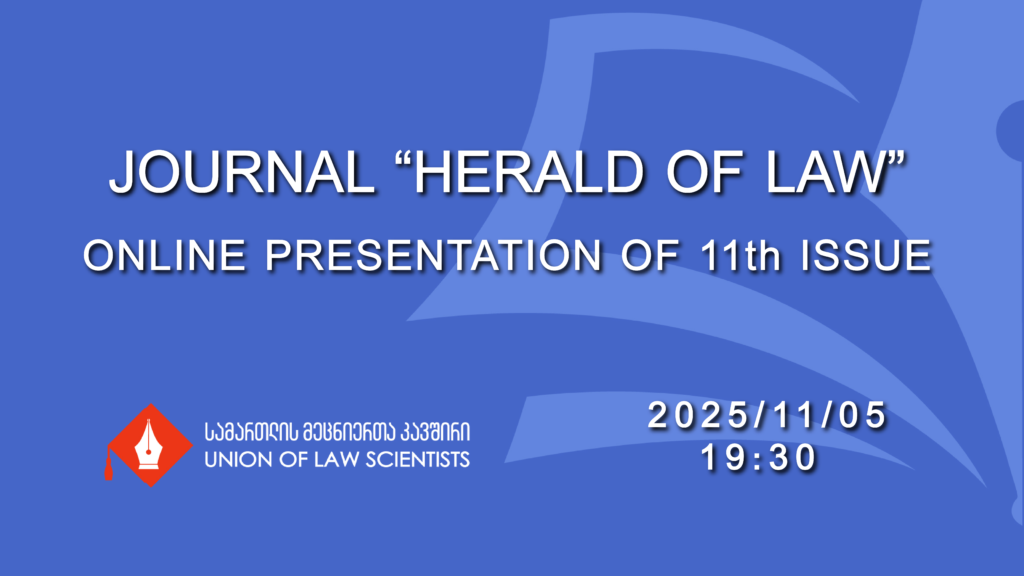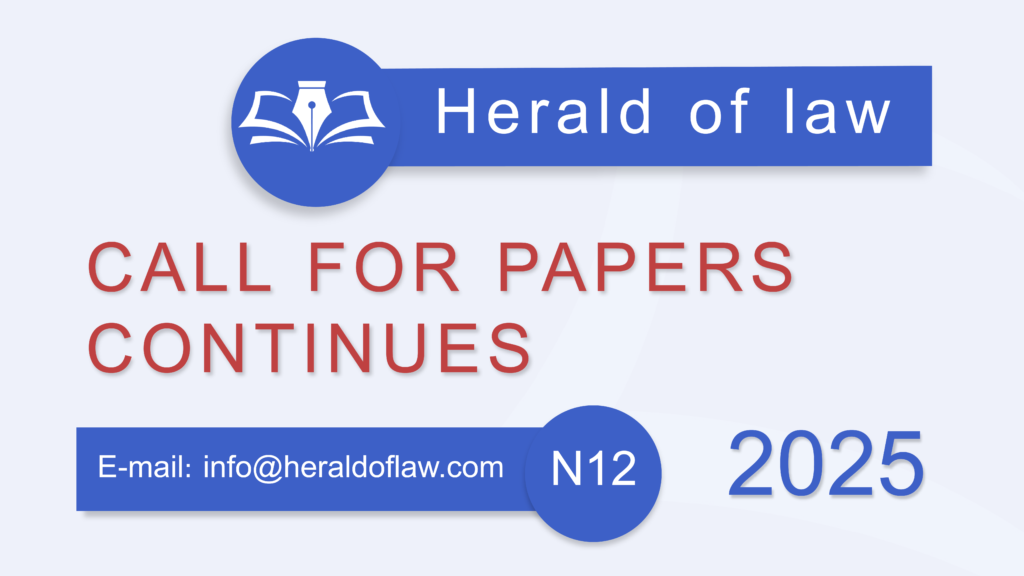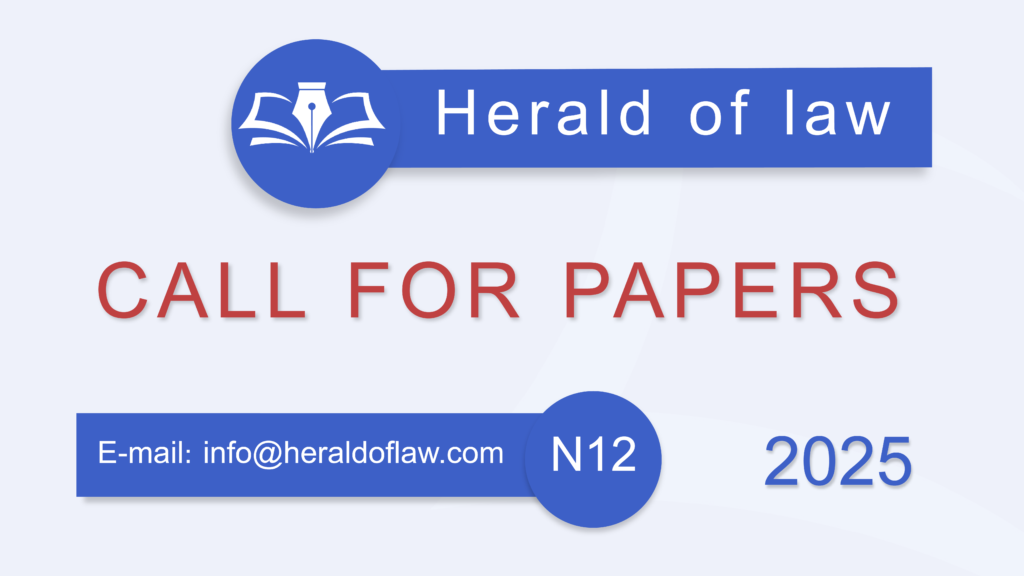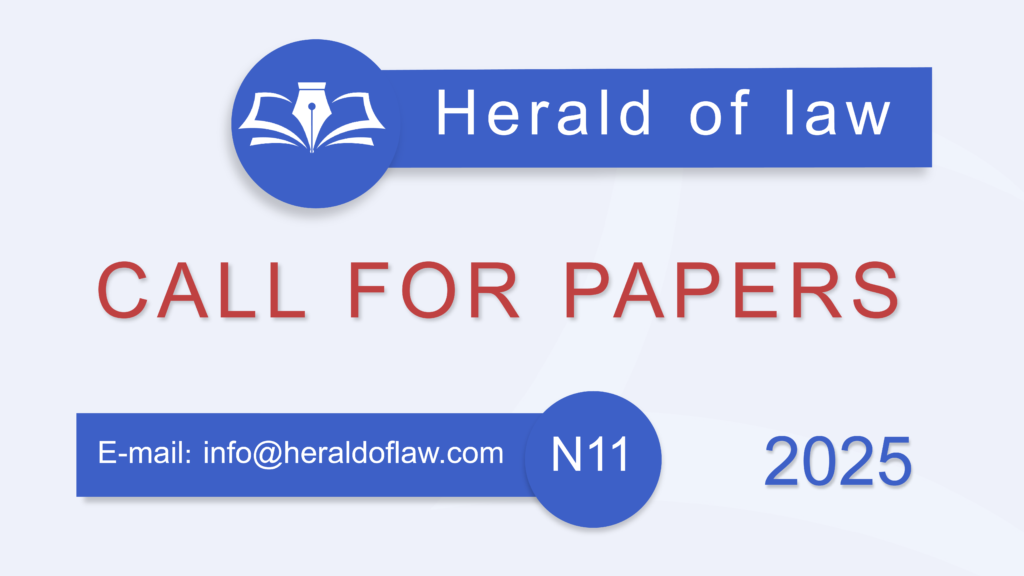Formal Constitutional Control – Analysis of the Legislation and Practice
Abstract:
The constitutional reform undertaken in Georgia in 2017, had a significant impact on the scope of the Constitutional Court’s competence. Some scholars believe that as a result of the reform, formal control was removed from the Constitutional Court’s competences. By analysing Georgian legislation and case law of the Constitutional Court of Georgia, the first part of the article aims establish to what extent is it possible to exercise formal control within the current wording of the Constitution.
The second part of this article is based on the systematic and logical analysis of ongoing case law and fully represents Georgian Constitutional Court’s approach to a specific form of the formal control. Constitutional norms establishing basic human rights and freedoms in many cases require that intervention in basic rights should be performed by keeping a specific legal form, for example, only under the organic law or law. This formal requirement will be deemed met when the issue is regulated directly by the law/organic law or when the legislator has lawfully delegated authority to regulate this issue. In order to be considered constitutional, such delegation should meet a list of criteria. The second part of the article outlines these criteria and systemizes data obtained as a result of thorough analysis of the decisions of the Constitutional Court of Georgia.
Keywords:
Delegation, Formal, Constitution




